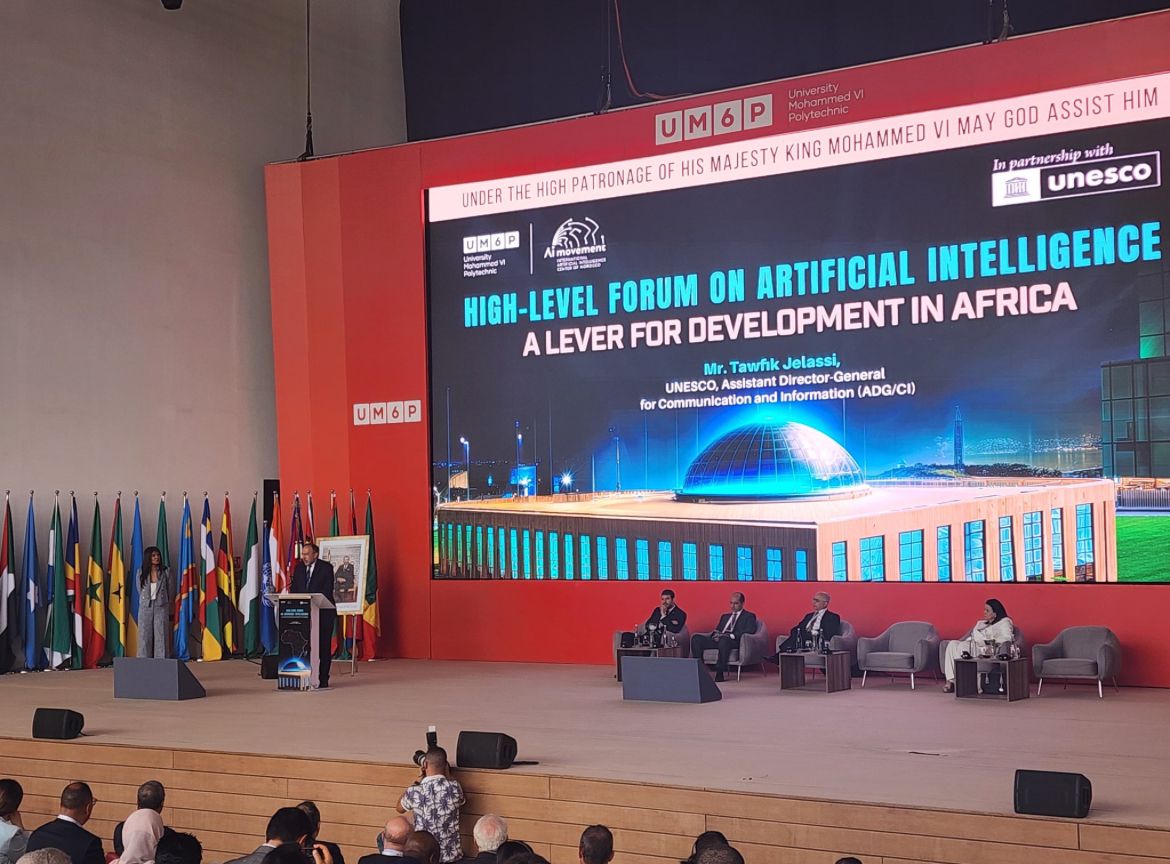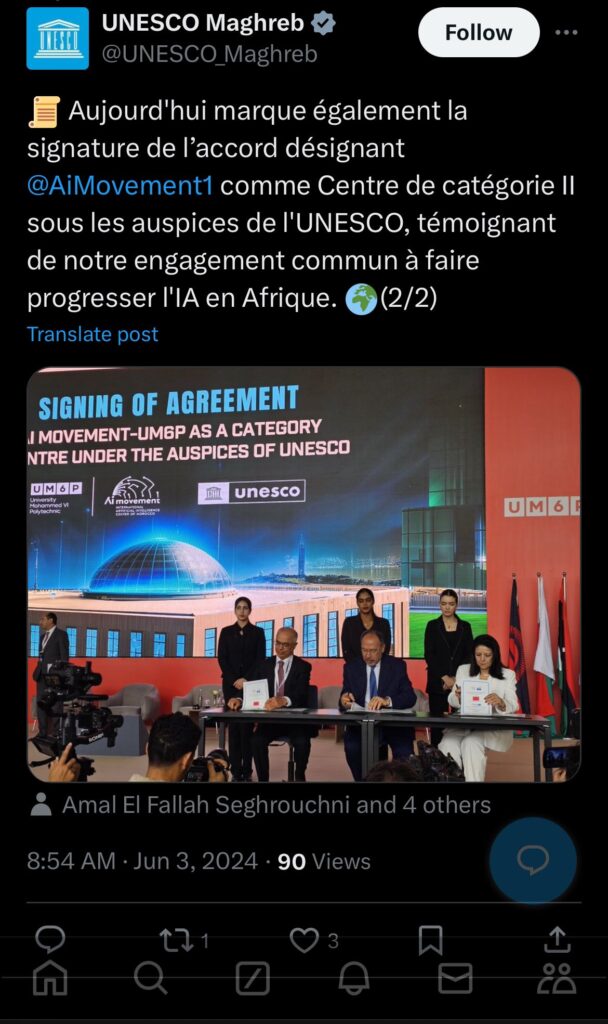In the first week of June 2024, from 3rd to 5th, Mohammed VI Polytechnic University and its Artificial Intelligence Movement were hosting the international high-level forum on Artificial Intelligence in Rabat, Morocco. This event brought together global leaders, technology experts, policymakers, and civil society representatives to discuss the latest advancements in Artificial Intelligence in Morocco and across Africa.
According to the United Nations Economic Commission for Africa, “if the continent captures ten percent of the global Artificial Intelligence market, it could add 1.5 trillion dollars to the African Economy by 2030.” That potential increase represents fifty percent of African GDP at the end of 2023. African governments and businesses are seeing Artificial Intelligence as a chance that can truly transform the continent.
Artificial Intelligence in Africa offers a tremendous opportunity to address challenges, and advanced development in a way it was never seen before, and it is flourishing especially in African tech hubs, it accelerates in creating innovative solutions. Artificial Intelligence also comes with risks when it is used abusing human rights, especially in countries that are still struggling in democracy.
Andile Stofile has been working to resolve large-scale positive change in South Africa over 20 years. He remembers the era of before 1994, when South Africa was approaching to electrify rural areas after apartheid. They were facing the resistance of farmers saying that the electricity and night light would intimidate their cattles and it could not improve their agricultural production as well.
Mr. Stofile told SABC News from South Africa that, today electricity is a core need that contributed everywhere in the economic development of South Africa after apartheid, which made this country the second most powerful economy on the continent after Nigeria.
“In the same way, today we are thinking of Artificial Intelligence as the fourth industrial revolution, while others are still thinking of Artificial Intelligence as a threat.” Mr Stofile continued, “we can’t afford to be left behind. Do not be concerned about Artificial Intelligence, be concerned about the person who got the skills to use Artificial Intelligence.”
Amal El Fallah Seghrouchni, The Executive Director of International Center of Artificial Intelligence in Morocco told the French Channel TV5 that this year, they planned to provide the basic strategy of artificial intelligence for Africa to the 28 delegations from different countries so far, including 15 African countries and other international institutions that are concerned by artificial intelligence, including United Nations, UNESCO, African Union, and all the centers of category 2 around the world that will get together during the forum. “We will have the opportunity of having discussion with all concerned actors of artificial intelligence on the continent as well as on the international level.” Said Mrs El Fallah Seghrouchni.
If you look at African continent free trade agreements, they aim to wipe away cross border barriers; Artificial Intelligence is making the movement of the people and goods far away efficient. There are applications in agriculture, education, energy distribution. How about the risks? The challenges and risks may be related to ethical, technical, and society related aspects. One of the Artificial Intelligence risks that is mentioned often in Africa is related to the potential misuse of technology, such as using it to violate people’s privacy or discriminating against certain groups, or there may be concerns regarding data privacy and security.
Artificial Intelligence in Africa offers more tremendous benefits than risks, so what needs to be done to get those opportunities by minimizing those risks. Mauritius was the first African country to come out with a national strategy for Artificial Intelligence, and several others followed. Recently, the African Union High Level Panel on emerging technologies has developed a continent wide strategy. Governments are pushing to develop tech echo systems, to attract businesses and investments in Artificial Intelligence technologies.
The Morocco Mohammed VI Polytechnic University forum featured inspiring TED-style talks, success stories from startup founders, and interactive sessions led by Artificial Intelligence experts from all over the world. This extensive brainstorming highlighted diverse perspectives and knowledge, enriching the debate on Artificial Intelligence’s implications and applications.
There are now 17 United Nations sustainable development goals, and the world can count at least 79% of sustainable development goals that can be achieved with the help of Artificial Intelligence in Africa.


